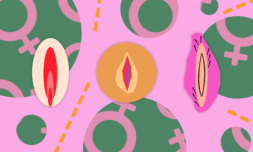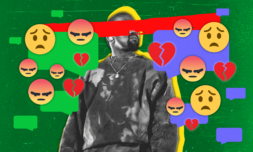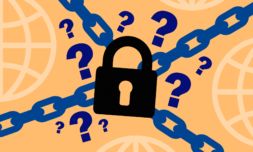‘Soulmates’ vs. poly-relationships
Gen-Z is pragmatic about the kinds of relationships they want to be in.
While the parents of Boomers might have stayed in relationships to ‘make it work for the kids’ or for the sake of saving face, more than half of Gen-Z and Millennials’ parents are divorced or not officially married, presenting a real-life lesson on relationship longevity.
Only 1 in 10 Gen-Z’s say they are ‘committed to being committed’ with an acute awareness that relationships tend to come and go. Just as Gen-Z isn’t static – moving cities, changing their style, and switching jobs frequently – they don’t expect their relationship to be stuck in time either.
When they do feel relationship ready, choosing a long-term partner means finding someone who can match their own personal values (i.e. anti-racist, non-homophobic, vegetarian) and not settling for less.
A 22-year-old told VICE that questionable character traits in a partner would be a dealbreaker – unless it was a non-serious, short-term fling. Another said that investigating their date’s values early on has become a natural part of their dating routine.
Averse to being boxed in, Gen-Z are also following Millennial’s interest in open or polyamorous relationships. According to YouGov America, 30 percent of Millennials and one third of all Americans surveyed say their ideal relationship would be non-monogamous.
While having multiple partners isn’t exactly part of mainstream culture (yet?) it’s certainly emerging from being considered taboo. We’ll have to wait some time to see how these relaxed approaches to dating and relationship habits shape marriage rates in the coming years.
It goes down in the DM
Of course, there remains a significant percentage of young people looking to follow in their parent’s footsteps – but even their approach to love will look far from traditional.
Regardless of age, social media and dating apps have transformed our global quest for love, and most of Gen-Z doesn’t know a life without them.
Dating apps have broadened our opportunities for finding someone new, a passive activity that can be done anytime, anywhere – whether you view this to be a positive or negative aspect of them or not.
And since the mid 2010’s, people have claimed that Instagram is one of the best dating apps there is. Looking at the results for #WeMetOnTwitter, there’s no shortage of couples who have met by sliding into the DMs anywhere else online, either.
But couple status isn’t easily achieved and ‘making it official’ requires a real discussion, something previous generations might have locked in with a shared kiss on the third date or a Facebook relationship request, for example.
This is a generation that has ghosted and been ghosted with no explanation, admitting that ‘you get over it’, despite widespread agreement that it can be a horrible thing to do.
Maintaining connections with technology has made it far easier for singles to juggle multiple lines of interest – and Gen-Z is keen on keeping their options open. This may seem evil or sneaky to older generations, but for young people, that’s simply the way it goes.
Bigger things to worry about
Aside from a digital approach to love and dating, Gen-Z is putting true love on the backburner because they’re programmed to see the bigger picture.
Entering adult life amidst complete chaos (need I remind you about the global pandemic, current climate crisis, and ongoing financial instability), it seems Gen-Z wants to find their own footing before sharing their lives with someone else.
With far more wiggle room to identify – or not identify – who they are, experimenting with their personal selves, relationships, and careers well into their 20s and possibly 30s is the new norm. Soul-searching is part of growing up, after all.
To top this all off, previous generations could afford homes and support their family on a single-parent salary, while Gen-Z would be lucky to do the same. They know this, too.
Today, the median average salary earned by the eldest members of this generation is under 25k. I’m no economist, but I’ve seen enough headlines about inflation and the housing markets to know supporting a child on this salary would cause some serious financial stress.
Achieving financial independence first is a practical and wise decision. It will allow Gen-Z more control over their lives in their future, regardless of whether they have a partner not.
Where the love at?
Undeniably, young people’s concepts of true love and dating have changed drastically.
Gen-Z might be taking it slow to commit to anything other than themselves, but they’re not totally loveless. Shaping their own identity and exploring different types of relationships to find out which make them feel best is simply taking precedence.
We use dating apps to online shop for prospective partners, meet, keep, and delete or block the ones whose values are offensive or don’t match up with ours. And when you view it that way, it sounds quite practical.
While tradition still lingers, the exact order or age for which we have children or get married are hardly confined to what they use to be. And even when Gen-Z does choose to go old-school mode, most will have strong financial plan in place before making it happen.
You know what they say, hey? Variety is the spice of life.





















